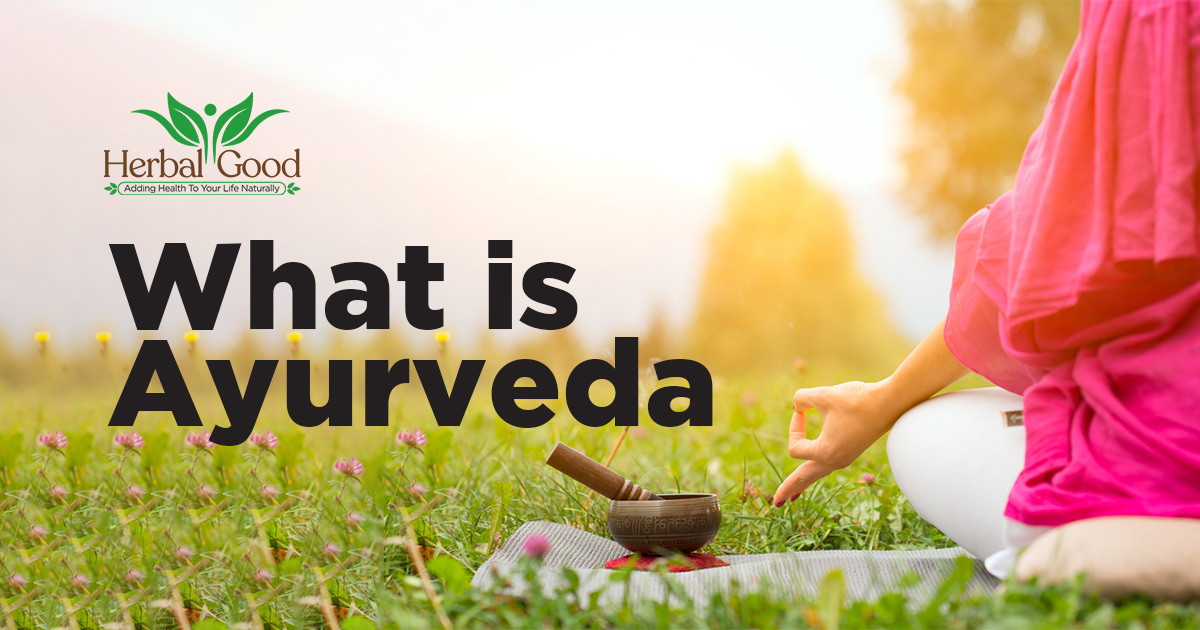Ayurveda is a holistic Indian medical system based on a constitutional model. It works to provide adaptable guidance to achieve a state of good health. Its treatment and techniques are also adaptable to people with health issues.
Ayurveda is derived from two Sanskrit root words: Ayu (Life) and Veda (Knowledge). As a result, it is safe to refer to Ayurveda as the “Science of Life,” rather than just a system for treating illnesses.
History of Ayurveda?
The ancient rishis, also known as seers of truth, discovered truth through religious practises and disciplines. They manifested truth in their daily lives through intensive meditation. The Ayurvedic health system is based on the practical, philosophical, and religious experiences of the great sages. Ayurveda’s historical evidence can be found in the Vedas, which are ancient books of wisdom. Ayurveda is described in the Atharva Veda, which was written over 10,000 years ago, as a system that helps maintain health in a person by using the inherent principles of nature to bring the individual back in to the equilibrium with their true self.
Science and Ayurveda?
Ayurveda is an excellent combination of science, religion, and philosophy. We use the term religion to refer to philosophical perceptions and behavioural discipline that allow us to perceive all aspects of life. The entire journey of life is considered sacred in Ayurveda. Ayurveda works to harness the intricate abilities of the human body and mind through its scientific approach to human life. Ayurveda’s philosophical approach to human life preaches us to recognise ourselves as insignificant components of this splendid universe. Ayurvedic philosophy also teaches a series of conceptual particular series by balance and disease, as well as health as well as disease. The interconnectivity of the self, personality, and all that happens in the mental, emotional, and spiritual being results in disease/health. To be healthy, there must be harmony between the goal of healing, thoughts, emotions, and actual action.
Ayurvedic pharmacological and physiological concepts are organised in a “whole-sameness” structure. As a result, the Ayurvedic summary of “human body” and “drugs” is approached from a holistic standpoint. Their “interface” is also identified from a holistic standpoint.
Body Types According to Ayurveda?
Ayurveda is founded on the three vata dosha, or basic energy types, which are further classified as vata, pitta, and kapha. These sister chromatids of each chromosome or energies, according to Ayurvedic medicine, can be found in everyone and everything, making them the fundamental building blocks of the material world. All three doshas interact to create different climates, foods, species, and even individuals within the same species, as well as perform different physiological functions in each individual body. Indeed, the specific vata, pitta, and kapha ratio within each of us has a significant influence on our individual physical, mental, and emotional personality traits.
Here is an explanation of the three doshas and the various functions they perform within the body.
1 – Vata Dosha (wind energy):
The space and air elements make up the majority of vata. It is the energy that is connected to flexibility and creativity and regulates motion-related biological functions like heartbeat, blood flow, breathing, blinking, tissue movement, cellular mobility, and nervous system and mind connection. Fear and anxiety can result from a vata dosha imbalance in the body.
2-Pitta Dosha (fire energy):
Pitta is a combination of the hot, sharp, light, liquid, greasy, and subtle traits and is mostly composed of the fire and water components. Pitta spreads but is neither mobile nor stable. It regulates your body’s metabolic processes, including nutrient absorption, digestion, and body temperature. When balanced, it promotes intelligence & happiness, and when out of balance, it can result in ulcers and rage.
3-Kapha Dosha (water energy):
The soil and water elements make up the majority of the Kapha Dosha (water energy).
It is energy that gives everything coherence and structure as well as the solidity required to preserve a certain form. It regulates body growth and supplies water to every region of the body. It hydrates all cells and systems, lubricates joints, moisturises skin, boosts immunity, and shields tissues as a result. It manifests as love and forgiving when it is in balance, and when it is out of balance, it can cause feelings of insecurity and envy.
Five Biggest Components of Panchamahabhuta
According to Ayurveda, there are five fundamental ingredients that make up everything in the cosmos. Earth (prithvi), water (jal), fire (agni), wind (vayu), and space, or ether, are the several names for these substances (akash). These five fundamental components are referred to as Panchamahabhutas together.
The idea of Panchamahabhutas is regarded as the cornerstone of Ayurveda and essential to comprehending how the human body moves and functions since Ayurveda holds that the elements and processes of nature are comparable to those of the human body.
Every living or non-living thing, substance, material, and item in the universe possesses these Panchmahabutas. Due to their large size in relation to their predecessor bhutas (minute forms of mahabhutas) or to their widespread existence, these elements can also be referred to as mahabhutas. In essence, however, the fact that these five components are present in everything in the cosmos and that nothing in it can be said to be devoid of them persists.
In light of the Panchmahabuta, how does the human health begin to function? The life becomes manifest in the mass of these five components, which we refer to as the physical body, when they become impregnated with the atma or soul. Diseases associated with that particular element or those elements that have undergone imbalance would result from imbalances developing with regard to one or more elements in the body. For instance, the prithvi (earth) element predominates in bone tissue, and when this element is out of balance, bone-related disorders like osteoarthritis and other similar conditions result.
The basic tenets of Ayurveda treatment are likewise centred on redressing Panchamahabhuta imbalances in the body. Therefore, it becomes crucial to comprehend the idea of Panchamahabhuta prior to anything else, particularly in light of the therapy.
Ayurveda in Daily Life
The best way to sum up ayurveda is as the science of living in balance with the natural principles. By implementing healthy and natural lifestyle modifications, this traditional Indian method of natural and holistic treatment encourages leading a balanced existence. The ancient knowledge found in Ayurveda is just as applicable today as it was then. In order to maintain and enjoy a healthy, stress-free, and balanced life in today’s fast-paced world, ayurveda and its principles are easily adaptable.
The three main themes of Ayurveda are healthcare, prevention, and healing. Care for one’s health also involves ways to rejuvenate oneself and extend one’s life. Numerous illnesses can be successfully treated using ayurvedic home remedies. However, prevention is the major priority because it is simpler to preserve health than to recover it after it has deteriorated.
An individual’s pathya (lifestyle), eating habits, and daily routine are highly valued in ayurveda. It also offers advice on how to lead a healthy lifestyle by incorporating ayurveda goods and medicinal plants into one’s diet and altering one’s lifestyle in accordance with the environment. You don’t have to drastically alter your way of life in order to include Ayurveda into your daily routine. Simple and easy steps like choosing natural or organic components over products and foods that have undergone chemical treatment can work wonders.
Living an active lifestyle that includes regular workouts like walking instead of a sedentary one can help you stay healthy and fit. You may prevent the body from producing ama or toxins by drinking fresh juice instead of canned or preservative-filled juices and include seasonal & fresh veggies in your meals. This will keep you feeling good and active all day. In addition, Ayurveda advises drinking enough of water during the day to help the body get rid of harmful toxins, as well as a warm beverage before bed to avoid indigestion and promote restful sleep. Try these simple natural indigestion cures for quick relief if you experience indigestion.
Advantages of an Ayurvedic Lifestyle
It is natural, it boosts immunity, and there are no negative side effects.
It suggests consuming readily available,
non-toxic foods that promote healing,
remove ailments from their source,
improve bodily processes, help one maintain a healthy weight,
lengthen one’s life, and relax, rejuvenate, and revitalise.
With its broad selection of goods, Herbal Good, one of the best ayurvedic company, aids you in living an ayurvedic lifestyle.


